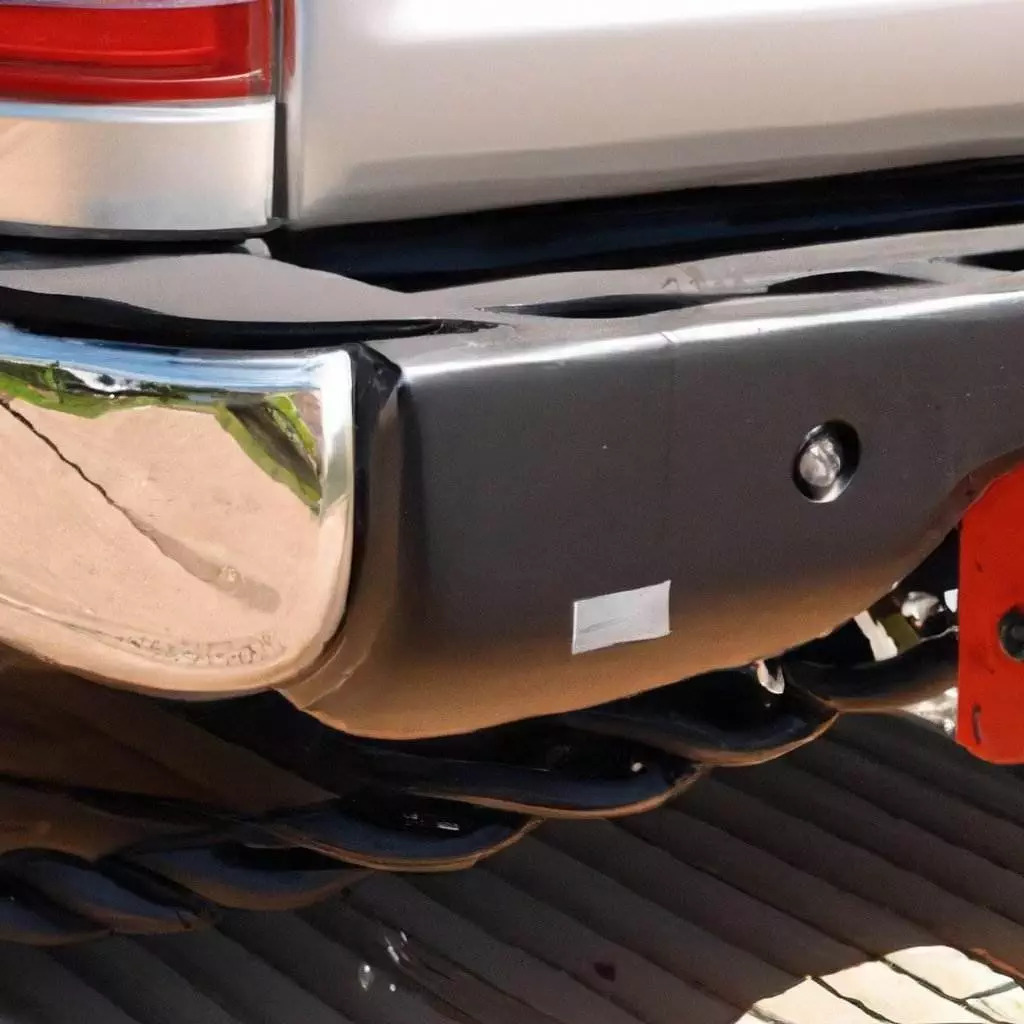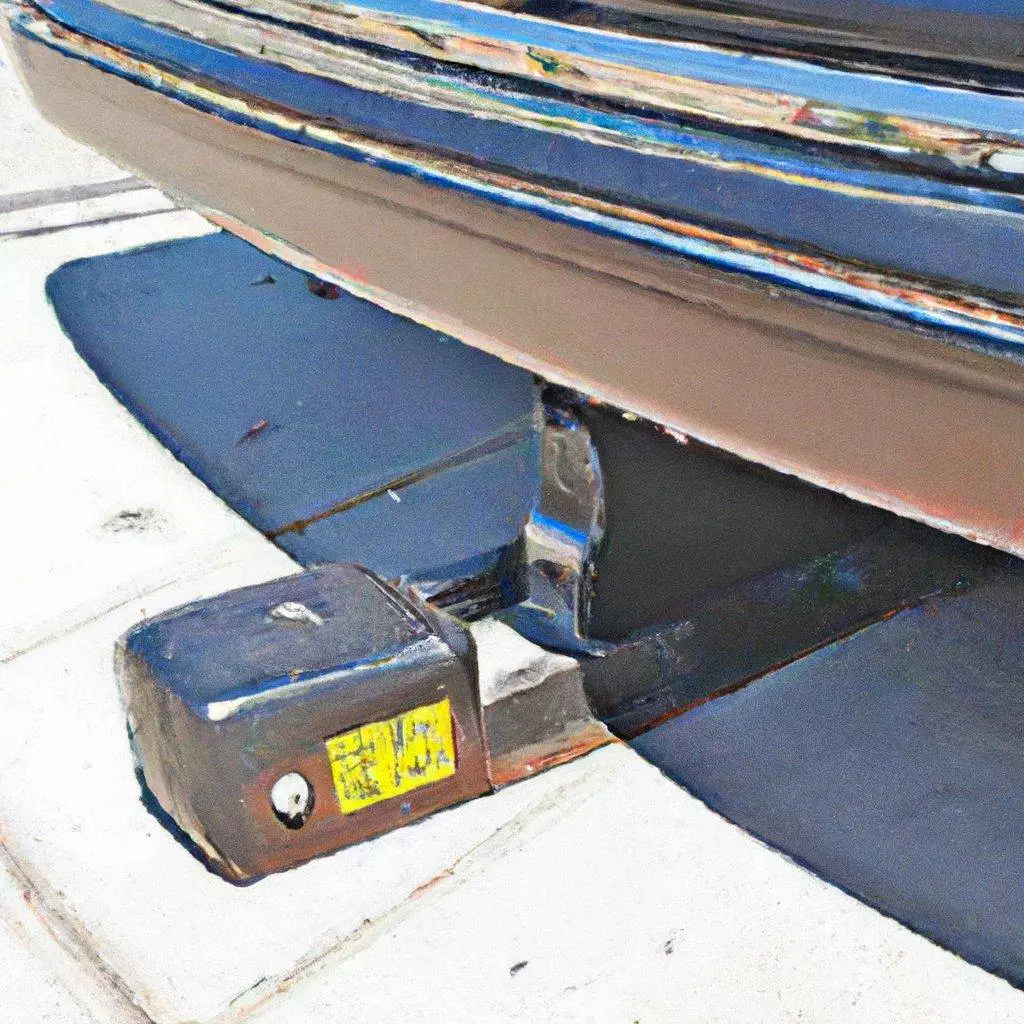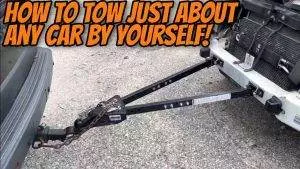In the world of towing, it is crucial to understand the distinction between a tow hitch and a trailer hitch. While these terms are often used interchangeably, they do possess subtle differences that could impact your towing experience. This article aims to shed light on the dissimilarities between a tow hitch and a trailer hitch, enabling you to make an informed decision when it comes to choosing the right hitch for your hauling needs. So, let us explore the variances and gain a comprehensive understanding of these essential towing components.
Overview
In the world of towing and hauling, it’s important to understand the terminology and equipment involved. Two commonly used terms are “tow hitch” and “trailer hitch.” While these terms are often used interchangeably, there are subtle differences between the two. This article aims to provide a comprehensive understanding of tow hitches and trailer hitches, including their definitions, functions, types, key differences, similarities, considerations, maintenance and safety, cost, and conclusion.
Definition of Tow Hitch
A tow hitch is a device that enables a vehicle to attach and tow another vehicle or trailer behind it. It acts as a connection point between the towing vehicle and the trailer or vehicle being towed. The main function of a tow hitch is to provide a secure and reliable link between the two vehicles, allowing for controlled movement and maneuverability.
Function and Purpose
The primary function of a tow hitch is to provide a solid connection point for towing purposes. It allows the towing vehicle to exert force on the towed vehicle or trailer, enabling it to move in sync with the towing vehicle. Tow hitches are commonly used when towing recreational vehicles, trailers, boats, or other heavy loads.
Types of Tow Hitches
Tow hitches come in various types, each designed for different towing needs. Some common types include:
- Receiver Hitch: This is the most commonly used tow hitch type. It consists of a receiver tube that is attached to the towing vehicle’s frame, with a removable ball mount or hitch-mounted accessory fitting into the receiver tube. Receiver hitches are versatile and can be used for various towing applications.
- Gooseneck Hitch: A gooseneck hitch is designed for heavy-duty towing. It consists of a hitch ball that extends from the towing vehicle’s bed and connects to a trailer through a coupling mechanism. Gooseneck hitches are commonly used for towing large trailers, horse trailers, or RVs.
- Fifth Wheel Hitch: Similar to a gooseneck hitch, a fifth wheel hitch is designed for heavy-duty towing. It utilizes a hitch assembly that is mounted to the bed of a pickup truck, with a kingpin coupling mechanism connecting to the trailer. Fifth wheel hitches are commonly used for towing large trailers or RVs, providing increased stability and weight capacity.

This image is property of pixabay.com.
Definition of Trailer Hitch
A trailer hitch, on the other hand, refers to the specific type of hitch used for connecting a trailer to a towing vehicle. It is an essential component for safely towing trailers of different sizes and weights.
Function and Purpose
The function of a trailer hitch is to create a secure attachment point between the towing vehicle and the trailer. It allows for the transfer of weight and forces between the two, enabling safe and controlled towing. A trailer hitch ensures that the trailer follows the movements of the towing vehicle, whether it’s accelerating, braking, or turning.
Types of Trailer Hitches
Just like tow hitches, trailer hitches also come in various types to accommodate different towing requirements. Some common types of trailer hitches include:
- Ball Hitch: A ball hitch consists of a ball mounted on the rear of the towing vehicle. The trailer hitch attaches to the ball through a coupler, providing a secure connection. Ball hitches are commonly used for small to medium-sized trailers.
- Pintle Hitch: A pintle hitch is designed for heavy-duty towing applications. It consists of a lunette ring mounted on the trailer and a pintle hook mounted on the towing vehicle. The lunette ring slides over the pintle hook, creating a robust connection suitable for towing heavy loads.
Key Differences
While tow hitches and trailer hitches serve similar purposes, there are several key differences between them.
Attachment Point
One of the main differences between tow hitches and trailer hitches is the attachment point. Tow hitches, such as receiver hitches, typically attach to the frame or rear bumper of the towing vehicle. Trailer hitches, on the other hand, attach to the tongue or front of the trailer, creating a connection point for the towing vehicle.
Design and Structure
Another difference lies in the design and structure of tow hitches and trailer hitches. Tow hitches, like receiver hitches, often consist of a square or rectangular receiver tube, whereas trailer hitches, such as ball hitches, feature a ball or coupler mechanism for attachment.
Weight Capacity
Tow hitches and trailer hitches also differ in their weight capacity. Tow hitches, especially gooseneck and fifth wheel hitches, are designed to handle heavier loads due to their robust construction. Trailer hitches, on the other hand, are typically designed for lighter trailers or recreational towing.
Application
The application of tow hitches and trailer hitches also differs. Tow hitches are versatile and can be used for various towing applications, including towing vehicles, trailers, or recreational vehicles. Trailer hitches, on the other hand, are specifically designed for towing trailers and are not as versatile in terms of towing different types of loads.

Similarities
Although tow hitches and trailer hitches have their differences, there are also some notable similarities between them.
Function
The primary function of both tow hitches and trailer hitches is to create a secure connection between the towing vehicle and the load being towed. Whether it’s towing a trailer, a vehicle, or a recreational vehicle, both types of hitches provide the necessary linkage for controlled movement and safe towing.
Material
Both tow hitches and trailer hitches are commonly made of strong and durable materials, such as steel or aluminum. These materials provide the necessary strength and stability required for towing heavy loads.
Installation Process
Another similarity between tow hitches and trailer hitches is the installation process. Both types of hitches require some level of installation, which may involve drilling, bolting, or welding, depending on the specific hitch and vehicle. It is crucial to follow the manufacturer’s instructions and seek professional assistance if needed to ensure proper installation.
Considerations
When choosing between a tow hitch and a trailer hitch, there are a few important factors to consider.
Vehicles Suitable for Each Hitch
Different hitches are suitable for different vehicles. Tow hitches, such as receiver hitches, are typically compatible with a wide range of vehicles, including cars, trucks, and SUVs. Trailer hitches, on the other hand, depend on the specific trailer coupling mechanism and the towing vehicle’s capabilities. It’s important to check the manufacturer’s recommendations and the towing capacity of both the vehicle and the hitch to ensure compatibility.
Towing Factors
When selecting a hitch, consider the towing factors, such as the weight of the load, the terrain, and the frequency of towing. If you plan to tow heavy loads or frequently tow over rough terrain, a heavy-duty hitch, like a gooseneck or fifth wheel hitch, may be more suitable. However, if you primarily tow lightweight trailers or recreational vehicles, a ball hitch or receiver hitch may be sufficient.
Legal Regulations
Before installing and using a tow hitch or trailer hitch, it is essential to familiarize yourself with the legal regulations in your area. Different regions may have specific requirements for towing, such as weight limits, trailer braking systems, and safety standards. Adhering to these regulations ensures both your safety and the safety of others on the road.

Maintenance and Safety
Proper maintenance and adherence to safety guidelines are vital for the longevity and safe operation of both tow hitches and trailer hitches.
Inspection
Regularly inspecting the hitch, including the bolts, nuts, and safety chains, is essential. Look for any signs of wear, corrosion, or damage. If any issues are identified, it is crucial to address them promptly and replace any worn or damaged components.
Regular Maintenance
Performing regular maintenance on the hitch is essential to ensure optimal functionality. This can include lubricating moving parts, such as the ball mount, cleaning off any dirt or debris, and checking for proper alignment.
Safety Tips
When using a tow hitch or trailer hitch, always follow some safety tips. These include ensuring the hitch is properly connected and secure before towing, distributing the load evenly on the trailer, using safety chains or cables as an additional safety measure, and being mindful of the trailer’s weight and limitations during acceleration, braking, and turning.
Cost
The cost of tow hitches and trailer hitches can vary depending on various factors, such as the type, brand, and weight capacity.
Price Range
Generally, tow hitches, such as receiver hitches, tend to be more affordable compared to trailer hitches. The price range for tow hitches can range from $50 to $300 or more, depending on the type and weight capacity. Trailer hitches, especially heavy-duty ones like gooseneck or fifth wheel hitches, can be more expensive, with prices ranging from $200 to $1,000 or more.
Additional Expenses
In addition to the initial cost of the hitch, it’s important to consider any additional expenses that may arise. This can include installation fees if you choose to have the hitch professionally installed, wiring harnesses for trailer lights, and any necessary accessories or modifications to ensure safe and legal towing.
Conclusion
In conclusion, while the terms “tow hitch” and “trailer hitch” are often used interchangeably, there are subtle differences between the two. A tow hitch refers to the device that allows a vehicle to tow another vehicle or trailer, while a trailer hitch specifically refers to the attachment point between the towing vehicle and the trailer. The choice between a tow hitch and a trailer hitch depends on various factors, such as the towing vehicle’s capabilities, the weight of the load, and the desired towing application. Regardless of the choice, proper maintenance and adherence to safety guidelines are crucial for the safe and efficient operation of both tow hitches and trailer hitches.
References
This article was written based on the insights and information provided in the following source:
- “What Is The Difference Between A Tow Hitch And A Trailer Hitch?” by etrailer.com.


